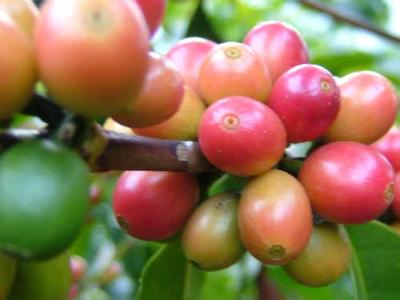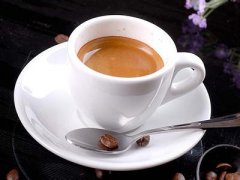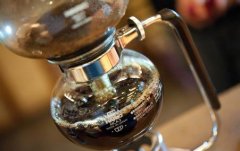The king of boutique coffee beans, Jamaica Blue Mountain Coffee.
Most people know that the price of a cup of real Jamaican Blue Mountain coffee should be in the triple digits, but did you know that not all blue beans can brew the flavor of Jamaican Blue Mountain coffee? Because the authentic Jamaican Blue Mountain Coffee flavor is a combination of beans and processing technology, rather than simple imported blue mountain beans.
Jamaican Blue Mountain Coffee has always been a divine existence in China, and almost every coffee shop must claim to have been there all the time. It's just that not many people really use blue mountain beans. According to Jamaica Coffee Bureau export statistics as of 2004, 85% of the limited Blue Mountain coffee bean quotas were exported to Japan, 5% to the United States, 5% to Europe and 5% to other countries. However, China accounts for 15% of the global consumption and distribution of authentic Jamaican Blue Mountain coffee, according to the International Coffee Association. This is due to the fact that some shares of Jamaican Blue Mountain coffee in Japan, Australia and Europe are exported to China through direct branches.
Some of the blue mountain coffee beans entering China are raw beans, that is, unprocessed coffee beans, while others are cooked beans processed by four local legal processing plants in the Blue Mountains of Jamaica. However, according to the president of the Guangzhou Coffee Association, the price difference between raw and cooked beans of Jamaican Blue Mountain Coffee is nearly ten times. Because Jamaica Blue Mountain coffee beans not only pay attention to origin origin, but also pay great attention to processing methods. If you import raw beans, one can not enjoy the perfect flavor of Jamaican Blue Mountain coffee, and on the other hand, it is easy to be mixed with other coffee beans by imported traders, and the intermediate process is not supervised.
In Jamaica, exported Jamaican Blue Mountain coffee beans must be tested and certified by the coffee shop before they can be allowed to be exported, and must use the Jamaican Blue Mountain coffee trademark registered by the coffee bureau in more than 20 countries around the world. can really be called authentic Jamaican Blue Mountain coffee beans. Among them, the Jamaica Coffee Bureau stipulates that the Jamaican Blue Mountain Coffee must be grown in the legal coffee area in order to be called the real Jamaican Blue Mountain Coffee. It is authorized to use the coffee bureau registered trademark: Blue Mountain Coffee.
The legal cultivation area of Jamaican Blue Mountain Coffee is on the eastern side of the island of Jamaica, with a total altitude of 7402 feet. Only at an altitude of 3000mur5000 feet can a balanced and slightly acidic Jamaican Blue Mountain Coffee be grown. Only in this altitude Blue Mountain area, the Jamaican Blue Mountain Coffee is considered to be 100% Jamaica Blue Mountain Coffee. The coffee grown below 3000 feet above sea level is alpine coffee, which is licensed to use High Mountain Coffee. The total amount of alpine coffee grown is five times that of Jamaican Blue Mountain coffee, and most private estates grow alpine coffee for export and domestic sale as a tourism specialty. As for the blue mountain area above 5000 feet above sea level, the jungle is dense and is not suitable for any crop.
Like red wine produced by famous houses, Jamaican Blue Mountain Coffee is also born in manors. the processing level of famous houses is much better than that of other processing plants, which is called legal manor. In the Jamaican Coffee Industry Regulation, the Jamaican Coffee Authority authorizes several large estates to centrally process coffee fruits, export Jamaican Blue Mountain coffee beans and use the Jamaican Blue Mountain Coffee trademark. to maintain the reputation and quality of Jamaican Blue Mountain Coffee.

Important Notice :
前街咖啡 FrontStreet Coffee has moved to new addredd:
FrontStreet Coffee Address: 315,Donghua East Road,GuangZhou
Tel:020 38364473
- Prev

Basic knowledge of boutique coffee beans Kenya AA
People in the coffee industry all think that Kenyan coffee is one of its favorite products because Kenyan coffee contains every feeling we want from a good cup of coffee. It has a wonderful and satisfying aroma, well-balanced acidity, well-balanced particles and excellent fruit taste, rich and perfect taste. Coffee entered Kenya in the 19th century, when Ethiopia
- Next

Barista teaches you how to identify authentic Blue Mountain coffee
Let's take a look at how to identify authentic Blue Mountain Coffee: 1. The green beans of Blue Mountain Coffee are cyan in shape, the appearance is very neat, the size is medium and small, and the two ends are somewhat tilted. After baking, the volume increases a lot and it is very full. 2 ground beans real blue mountain coffee beans grow at high altitude, its cytoplasmic structure is relatively loose, when ground by hand feel very crisp very cool very continuous, there will be no
Related
- Detailed explanation of Jadeite planting Land in Panamanian Jadeite Manor introduction to the grading system of Jadeite competitive bidding, Red bid, Green bid and Rose Summer
- Story of Coffee planting in Brenka region of Costa Rica Stonehenge Manor anaerobic heavy honey treatment of flavor mouth
- What's on the barrel of Blue Mountain Coffee beans?
- Can American coffee also pull flowers? How to use hot American style to pull out a good-looking pattern?
- Can you make a cold extract with coffee beans? What is the right proportion for cold-extracted coffee formula?
- Indonesian PWN Gold Mandrine Coffee Origin Features Flavor How to Chong? Mandolin coffee is American.
- A brief introduction to the flavor characteristics of Brazilian yellow bourbon coffee beans
- What is the effect of different water quality on the flavor of cold-extracted coffee? What kind of water is best for brewing coffee?
- Why do you think of Rose Summer whenever you mention Panamanian coffee?
- Introduction to the characteristics of authentic blue mountain coffee bean producing areas? What is the CIB Coffee Authority in Jamaica?

